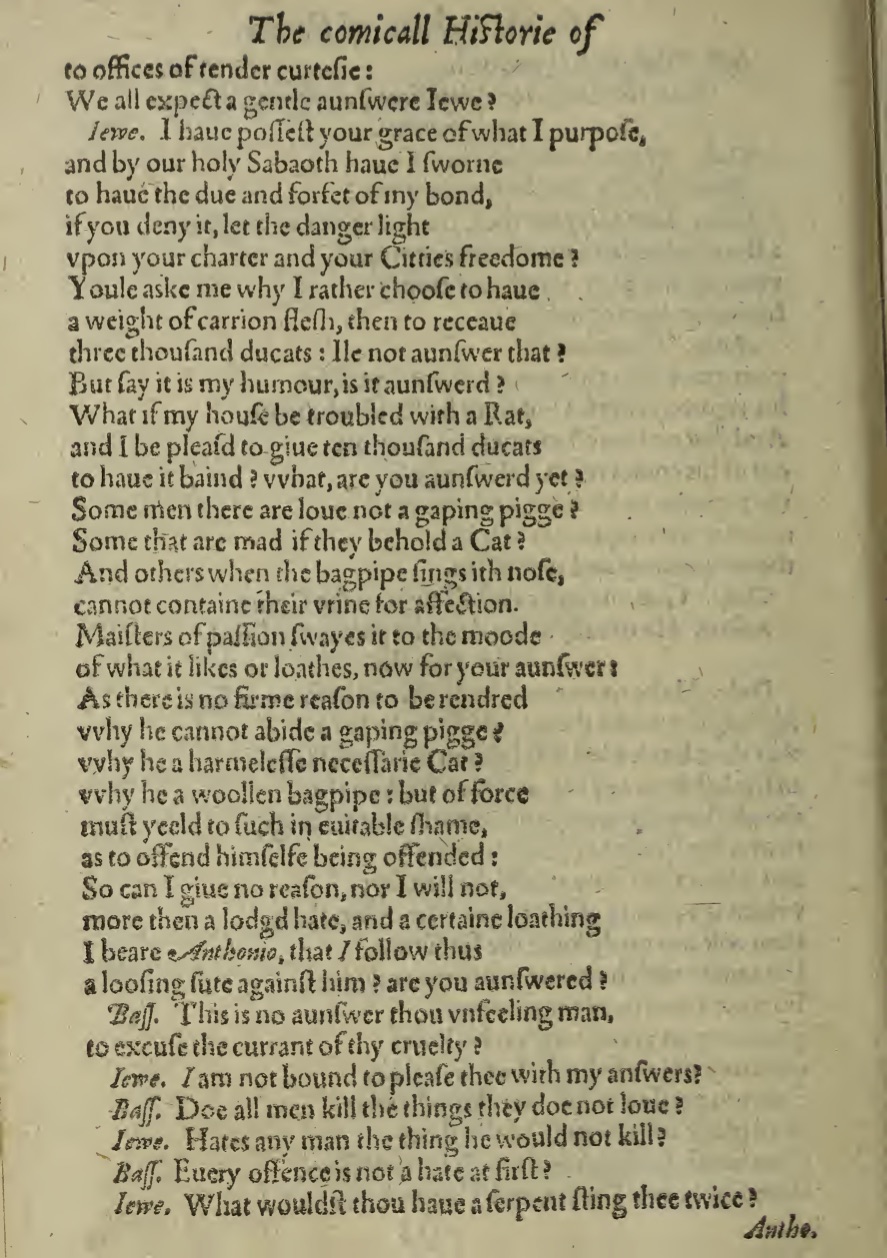The DUKE, ANTONIO, BASSANIO, GRAZIANO, and SHYLOCK are in a courtroom.
Shylock sits in the witness stand, and the Duke stands over him. The rest watch, standing, as the Duke grabs him forcefully by the arm.
DUKE: [on the question of your request for a pound of flesh] We expect you to answer
with Christian kindness and grace , Jew.
SHYLOCK: I already told you what I want and I’ve made my intentions
clear more times than I can count.
I swear to God, I will get what I’m owed.
If you and your corrupt court
prevent me from getting it, destruction
will come to your charter and commonwealth,
and it is only when your people lose their freedom, that they will finally understand the plights of the Jewish experience in this city.
You’re wondering why I demand a pound of flesh
rather than the money that’s owed to me.
Let’s just say it’s an inside joke
with me and myself. Does that give you your answer?
If I had a rat in my house,
and I wanted it killed, would you question my reasons?
One man may love pigs,
while another loves cats,
and the next wets his pants when he hears the sound of a bagpipe.
Our desires cannot always be explained.
So I cannot answer you, and I won’t.
Antonio is awful and he has given me countless reasons to hate him,
and now he must follow through on our legal agreement, to which he himself swore on. Is that a satisfactory Christian answer for you?
BASSANIO: That’s not a sufficient answer, you apathetic asshole,
it doesn’t excuse the cruelty your request requires!
SHYLOCK: My answers aren’t obligated to make you happy.
BASSANIO: Is violence and killing the only way to resolve this conflict?
SHYLOCK: I’m sure everyone would love to kill the thing they hate.
and you’ve all made that perfectly clear through your violent discrimination of my people.
BASSANIO: You don’t have to hate someone just because of one mistake.
SHYLOCK: So should I just sit back and let a snake sting me as much as he wants?
